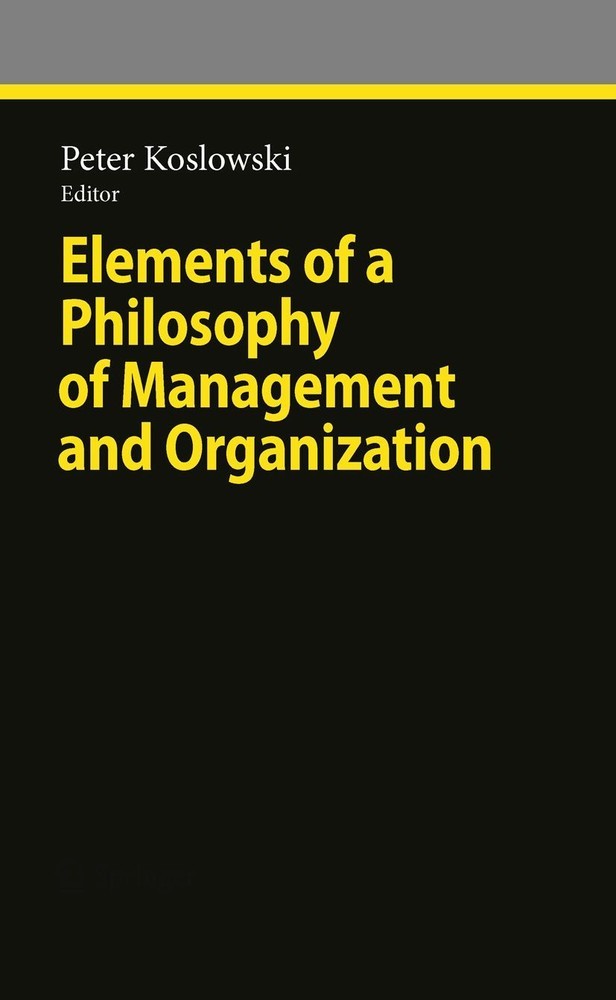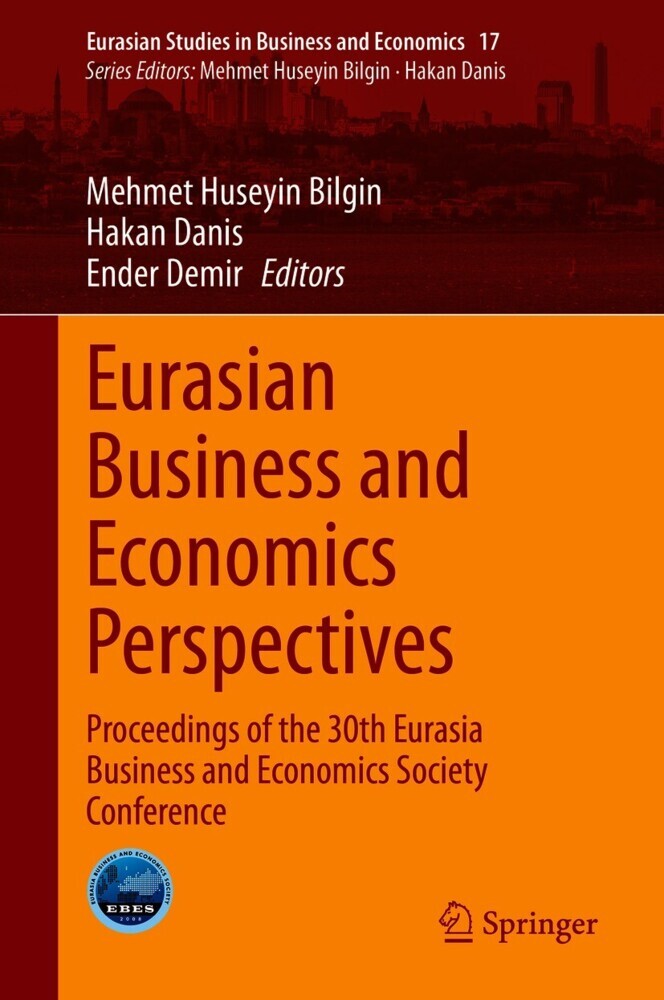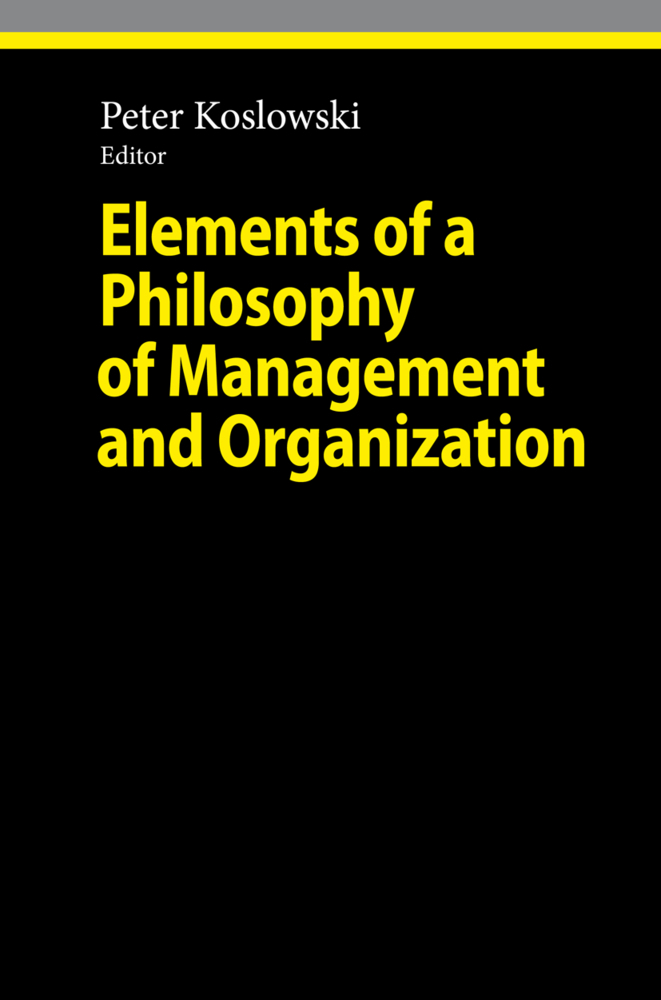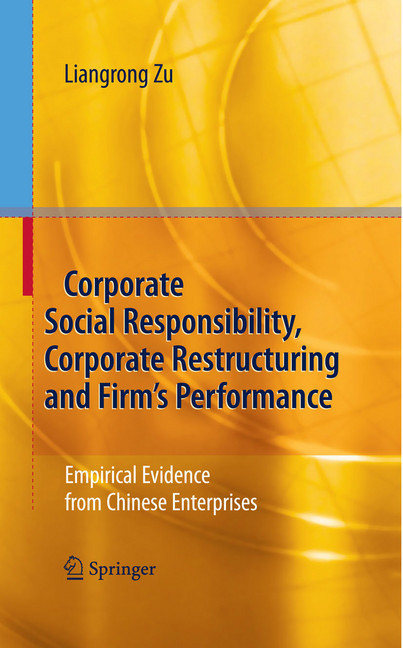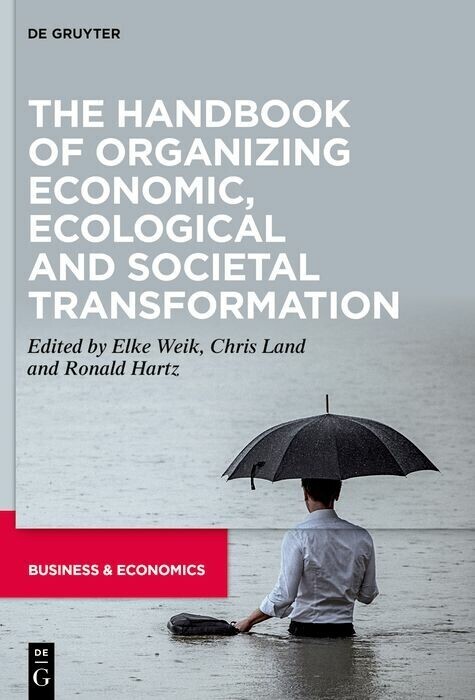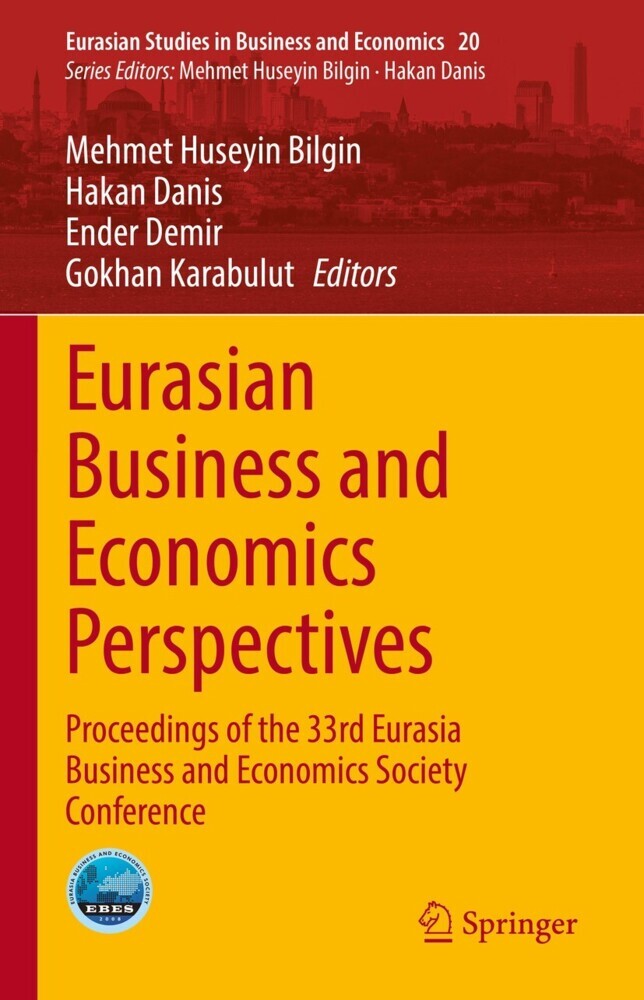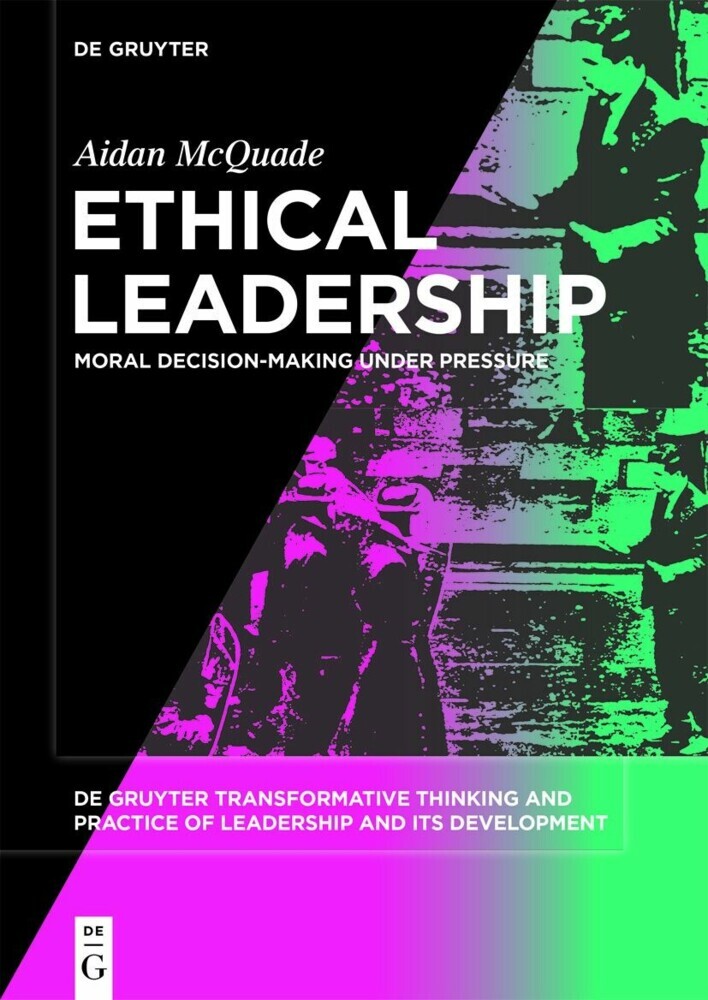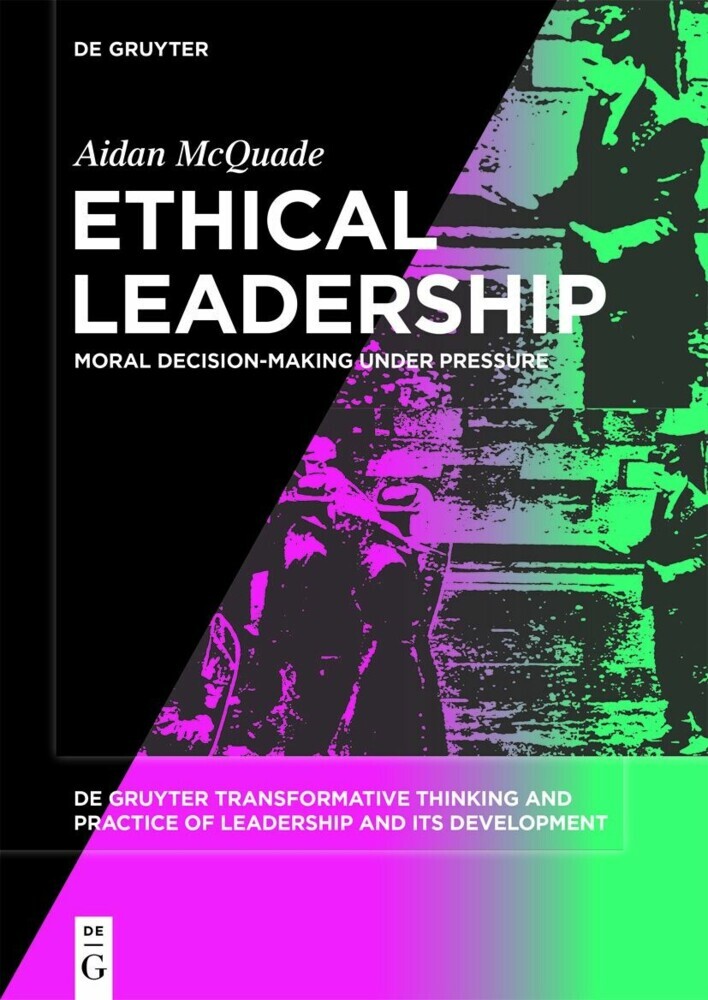Elements of a Philosophy of Management and Organization
Elements of a Philosophy of Management and Organization
Managing as a form of human action has an inherent link with philosophy, which is also concerned with choosing the right action and the best way to lead our lives. Management theory and philosophy can join forces in epistemology (the philosophy of knowledge), ethics, and cultural theory. The epistemology of management concerns the question of how management can improve its ability to create knowledge about managing companies and about using management theory in the task of managing. Management ethics investigates the question of what the right management actions are. The cultural theory of management examines how corporate culture can increase the cooperation within the firm and how the cultural surplus value of products and brand management can increase the firm's value creation in its products.
This book introduces the readers to central approaches in this new field, which represents a synthesis of management and philosophical theory.
1;Preface;5 2;Contents;7 3;Part A Management and Philosophy;9 3.1;Chapter 1 The Philosophy of Management: Philosophy as a Challenge to Business, Management as a Challenge to Philosophy;10 3.1.1;I. Introduction;11 3.1.2;II. Management Ethics and Corporate Governance: The Total Good of the Firm as the Fiduciary Duty of the Manager;15 3.1.3;III. Management and Cultural Philosophy 1: Culture Value as the Task of the Organization to Increase the Internal Cooperation;18 3.1.3.1;1. What is Cultural Capital?;18 3.1.3.2;2. The Increased Cooperation of the Firm as Cultural Capital and Culture Value;19 3.1.4;IV. Management and Cultural Philosophy 2: The Circle of Experiencing and Understanding in Management and in Art;20 3.1.4.1;1. The Cultural Surplus Value of the Goods and Services as the Firm's Task;20 3.1.4.2;2. The Circle of Cultural Understanding and Experiencing in the Production of Art and of Industry;21 3.1.5;V. The Challenge of Management to Philosophy;23 3.2;Chapter 2 Philosophy of Management: Concepts of Management from the Perspectives of Systems Theory, Phenomenological Hermeneutics, Corporate Religion, and Existentialism;26 3.2.1;I. The Emergence of Business Ethics: Towards the Political Firm;26 3.2.2;II. Values-driven Management and Organizational Systems;31 3.2.3;III. Leadership, Judgment, and Values;37 3.2.4;IV. Corporate Religion, Existentialism, and Kierkegaard;44 3.2.5;V. Conclusion;51 4;Part B Organization Theory, Organizational Practice, and Philosophy;52 4.1;Chapter 3 Critical Realism, Organization Theory, Methodology, and the Emerging Scienceof Reconfiguration¹;53 4.1.1;I. Introduction;53 4.1.2;II. Critical Realist Metaphysics;55 4.1.3;III. The Conception of Theory;60 4.1.4;IV. Methodology;64 4.1.5;V. Research Designs and Logics of Discovery;70 4.1.5.1;1. Single Case Study Research;70 4.1.5.2;2. Research Involving Comparative Case Studies;72 4.1.5.3;3. Generative Institutional Investigations;75 4.1.5.4;4. From General Contexts to Mechanisms;76 4.1.6;VI. Final Remarks;81 4.2;Chapter 4 Epistemological Issues and Aspects of Organizational Practice;84 4.2.1;I. Introduction;85 4.2.2;II. Epistemology;85 4.2.2.1;1. Relational Epistemology;86 4.2.2.1.1;a) Knowledge Relation;87 4.2.2.2;2. Epistemic Variety;88 4.2.2.2.1;a) Questions;88 4.2.2.2.2;b) Strategies of Explanation;89 4.2.2.2.3;c) Dimensions of Knowledge;90 4.2.2.2.4;d) Data, Information and Knowledge (dak);92 4.2.2.3;3. Quality of Knowledge;92 4.2.2.3.1;a) Criteria of Truth;93 4.2.2.3.2;b) Profoundness;94 4.2.2.3.3;c) Sources of Knowledge;94 4.2.2.4;4. Justification;95 4.2.2.4.1;a) S knows P;96 4.2.2.4.2;b) Virtue Epistemology;97 4.2.2.5;5. Summarizing Conclusion;98 4.2.3;III. Epistemological Issues and Organizational Practice;98 4.2.3.1;1. Action Regarding Knowledge;99 4.2.3.2;2. Knowledge and Organizational Practice;100 4.2.4;IV. Epistemology and Good Governance;101 4.2.4.1;1. Transparency;102 4.2.4.2;2. Integrity;104 4.2.4.3;3. Epistemology: Transparency, Auditing and Integrity;105 4.2.4.3.1;a) Transparency, Auditing and Integrity;105 4.2.4.3.1.1;Transparency;106 4.2.4.3.1.2;Auditing;107 4.2.4.3.1.3;Integrity;108 4.2.4.3.2;b) The Relevance of Epistemology;109 4.2.5;V. Concluding Remarks;111 4.2.6;References;111 5;Part C Philosophy, Economics, and Business Ethics;113 5.1;Chapter 5 Values and the Limits of Economic Rationality: Critical Remarks on 'Economic Imperialism';114 5.1.1;I. Economic Imperialism?;114 5.1.2;II. The Being Given of Preferences and the Validity-reflexive Formation Process;119 5.1.2.1;1. The Being Given of Preferences;119 5.1.2.2;2. The Validity-reflexive Formation Process;121 5.1.2.3;3. Application of the RCM to Itself;128 5.1.3;III. Quantifying Preferences and Their Quality;129 5.1.4;References;136 5.2;Chapter 6 Business Engagement, Mental Models, and Philosophy in the Globalized World;140 5.2.1;I. Introduction: Order in the Globalized World?;140 5.2.2;II. Mental Models Matter: Some Empirical Figures;141 5.2.3;III. Philosophers on Normative
Koslowski, Peter
| ISBN | 9783642111402 |
|---|---|
| Artikelnummer | 9783642111402 |
| Medientyp | E-Book - PDF |
| Auflage | 2. Aufl. |
| Copyrightjahr | 2010 |
| Verlag | Springer-Verlag |
| Umfang | 187 Seiten |
| Sprache | Englisch |
| Kopierschutz | Digitales Wasserzeichen |

